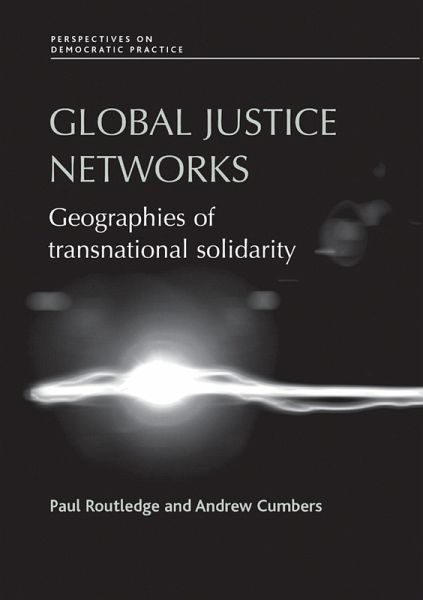
Global justice networks (eBook, ePUB)
Geographies of transnational solidarity
Versandkostenfrei!
Sofort per Download lieferbar
17,95 €
inkl. MwSt.
Weitere Ausgaben:

PAYBACK Punkte
9 °P sammeln!
Provides a critical investigation of the 'global justice movement'. Drawing upon three case studies - a peasant farmers' network, a trade union network, and the social forum process - the authors argue that the role of key geographical concepts of space, place and scale are crucial to an understanding of the operational dynamics of these networks.
Dieser Download kann aus rechtlichen Gründen nur mit Rechnungsadresse in A, D ausgeliefert werden.













